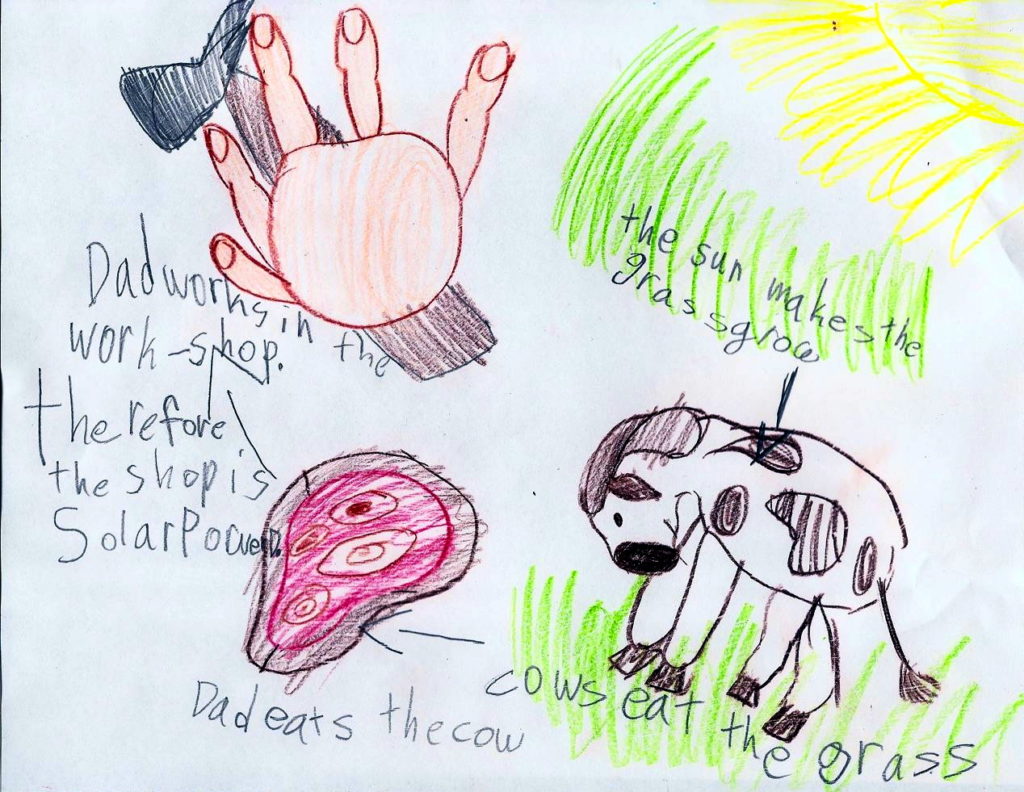Most of the talk about reducing food waste focuses on big solutions and improving efficiency, but big solutions tend to create waste; in fact the pursuit of efficiency itself can create new kinds of waste even while limiting other kinds. Let me give just one example of why: Chickens.
Boycotts, action, and penance
What I would suggest, therefore, is this: Whenever you sign a boycott or a petition, any time you email a corporation or a Congressperson to ask that they change their own behavior or force a change in someone else’s, first think of five things that you could have done, relative to the same issue or a closely related one, in the past month, but did not do. Then think of one thing that you could do, and do it. The five things ensure that you don’t get to feel self-righteous about your action; the one ensures that you take personal responsibility for the issue.
What’s “processed”?
Suppose you want to eat less processed food. Given how and what most Americans eat, that impulse is probably a good one. But once we go beyond the obvious (cheese curls, sugar cereal, hot dogs) you find yourself down the rabbit hole. What about that bottle of salad dressing you use to perk up your unprocessed salad? Is hot sauce ok? What boxed cereal can you eat? You start squinting over ingredients lists, blocking the grocery aisle with your empty cart. You accept an invitation to a potluck and sit horror-struck by the potential dangers lurking in the dishes, feeling your appetite slipping away like blue cheese dressing off a greasy wing. To bolster your flagging courage, you read endless blog posts about why the things you’ve given up are killing other people’s children. You develop an evangelical zeal, gnawed by the fear that your friends will make fun of you the moment you step out of the room. You begin to wonder if you should get new friends.
And then you throw up your hands and dive into a bag of Doritos.
Now, I am the last person to advocate eating most of the food available in American supermarkets. I make my own jam and pickles, I bake bread, I cook practically every meal from scratch, I shop at farmers’ markets. After twenty years of living and eating like this, industrially processed food no longer really tastes like food. Forget health concerns; it just isn’t particularly satisfying.
But having lived this way for twenty years — and having put a great deal of thought into it during that time, and having done a lot of research on how foods were historically prepared — I’m painfully aware that any notion of purity about this business is foolishness. Cooking is, after all, processing, and humans have been doing that for what, fifty thousand years? We’ve been grinding grain into meal for five thousand years, and we’ve been processing and selling food commercially (mainly as grain, oil, and spices) for probably four thousand. I can, if I try, justify the natural origins of practically any edible substance — or find fault with the freshest of fruits. (What the heck is “food-grade wax”?)
Obviously, any sane and sensible person is going to draw a line somewhere. But any line we draw will to some extent be arbitrary; any principle we set will inevitably include some things that seem thoroughly unnatural and exclude others we can’t manage without. I’m going to consider some possible standards, suggest an alternative that’s (you won’t be surprised to learn) largely historical, show how difficult it is to apply even that comparatively objective standard — and then draw some conclusions about navigating this mess sensibly. It’s a long piece, but hit-and-run easy answers are exactly what we need to avoid.
The solar woodshop, explained
These days it’s all green this and renewable that, solar houses and electric cars and trains that run on cow farts. Well, look, my woodshop runs on solar energy, too. My daughter drew this diagram to show you all how it works:
I admit I do run a fluorescent light and a radio. But otherwise it’s just the sun, grass, cows, and me. Ain’t no energy greener than hand power, friends.
The lap of luxury
Before Christmas I received an email from someone who seemed to be quite angry with my whole “new agrarian” idea. I won’t embarrass him by quoting extensively (it wasn’t a particularly nice email), but he made this point:
All the agrarians I know… became agrarian so that they could get away from “luxuries”.
Apparently he believes, based on various things I’ve said around here, that I indulge in too many luxuries and am therefore not worthy of the term “agrarian.”
Wednesday night a windstorm knocked our power out, and I got to thinking: What’s a luxury?
